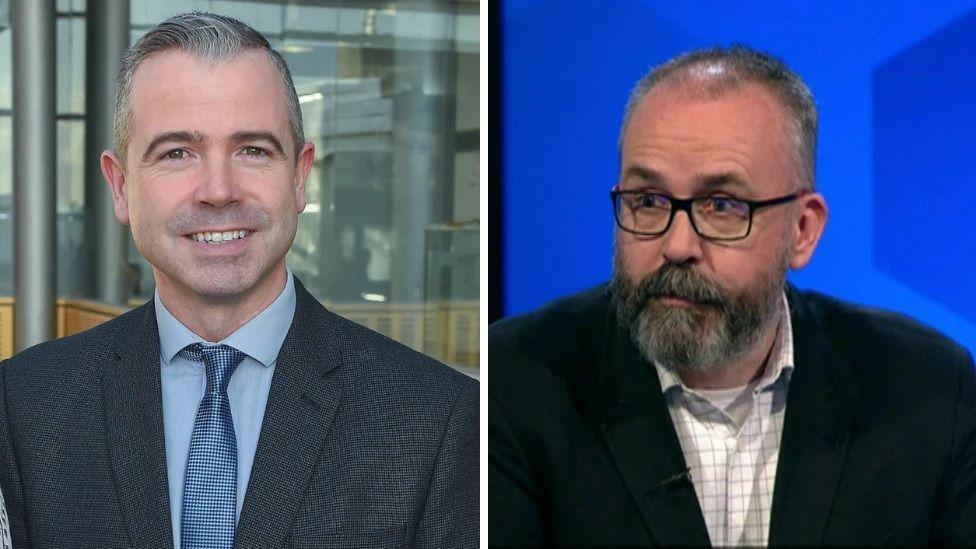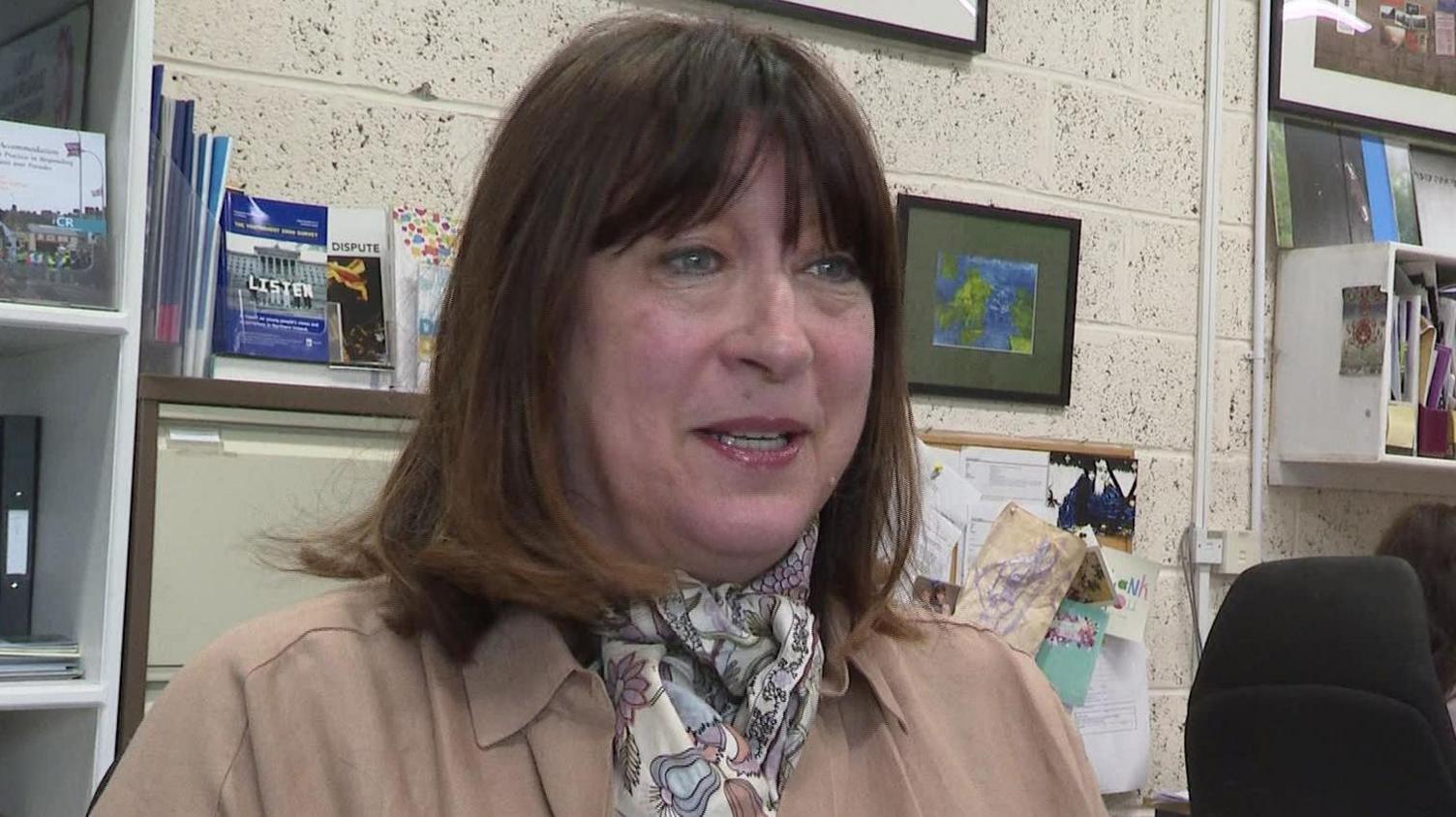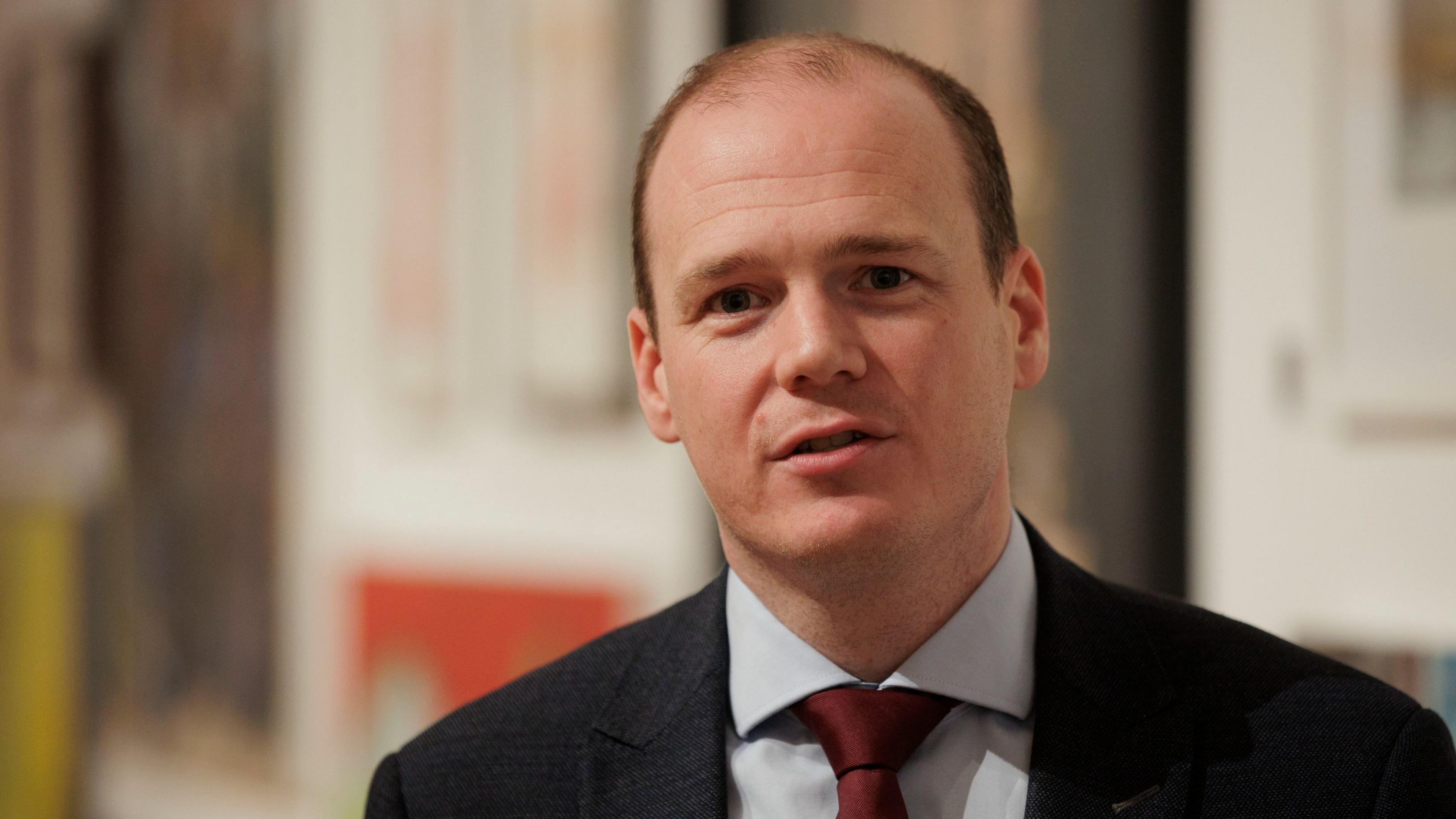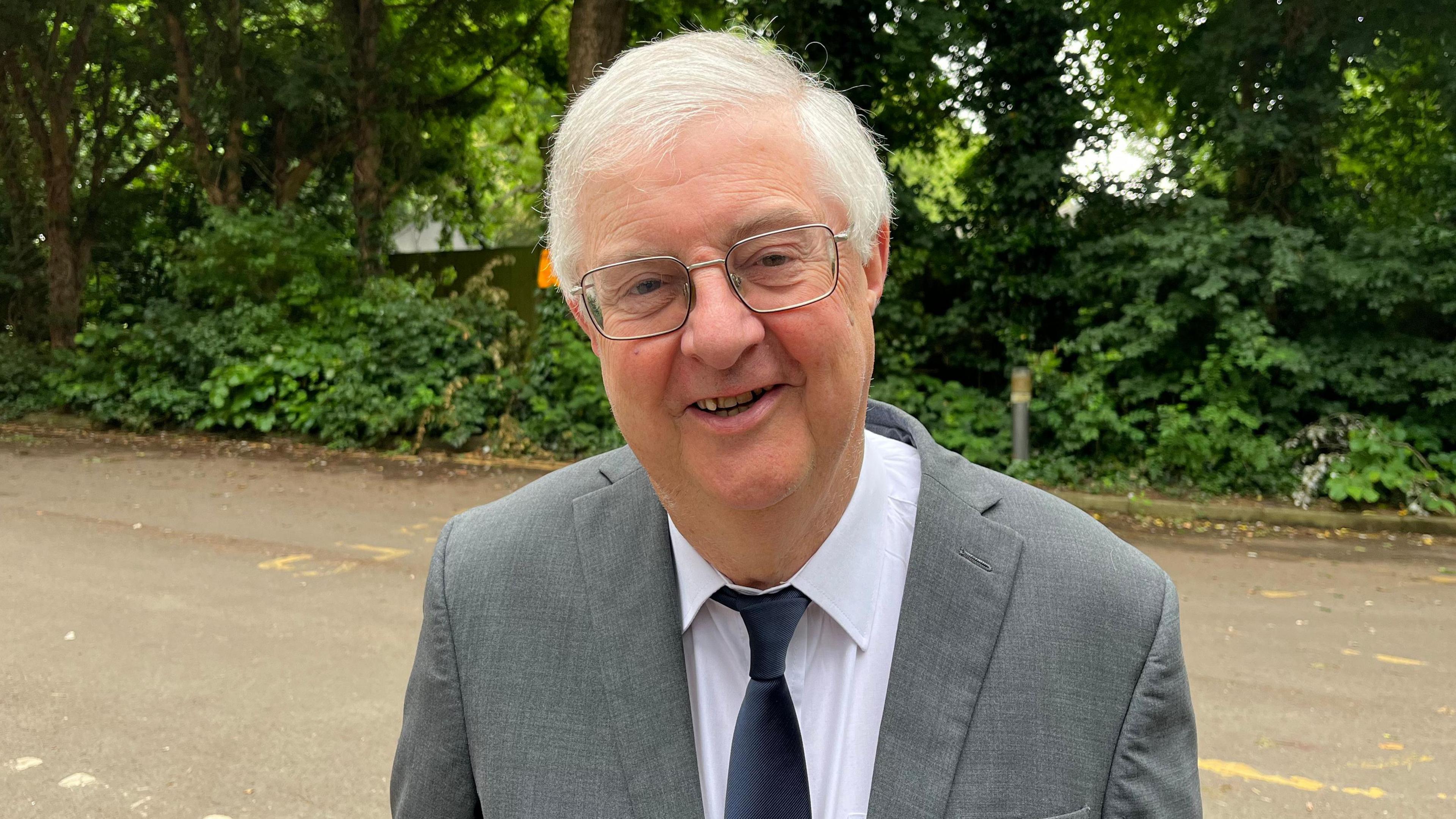Stormont's first Irish language and Ulster-Scots commissioners appointed

Pól Deeds (left) and Lee Reynolds (right) are the new language commissioners
- Published
Northern Ireland's first Irish language and Ulster-Scots commissioners have been formally appointed.
The new Irish language commissioner is Pól Deeds, the deputy chief executive of the cross-border body Foras na Gaeilge.
Former Democratic Unionist Party (DUP) councillor Lee Reynolds is the commissioner for the Ulster-Scots and Ulster British tradition.
Dr Katy Radford has been appointed as director of the new Office of Identity and Cultural Expression (OICE).
They will take up their roles on 13 November, for a period of five years.
The announcement comes more than two months after BBC News NI revealed Mr Deeds and Mr Reynolds had been offered the posts.
The appointments were jointly approved by the first and deputy first ministers in Northern Ireland's power-sharing devolved government.
The posts were agreed as part of the New Decade New Approach deal in 2020, which led to the restoration of the Stormont executive after a three-year collapse.

A protest by Irish language campaigners in Belfast city centre in 2022
The first and deputy first ministers have also confirmed the appointments of Brian Dougherty, Ellen Finlay, Stephen Moore, Dr Callie Persic and Dr Jacqueline Witherow as members of the OICE board.
They will take up their posts on 3 December, also for a five-year term.
'A watershed moment'
Irish language groups described the appointment of a commissioner as a "watershed moment".
Ciarán Mac Giolla Bhéin, president of Conradh na Gaeilge, said: "For the first time in our history, we will have a strong voice for language rights in the very heart of the state."
He said language legislation introduced in 2022 was "far from perfect" and "nowhere near strong enough".
But he said the appointment was a "significant footstep towards a new society where the Irish language is treated with dignity and equality".
Caoimhe Nic Cú Uladh, from the campaign group An Dream Dearg, said the appointment was a result of "thousands of Gaels taking to the streets over the last decade".
She said there could be "transformational changes if the commissioner is supported effectively".

Dr Radford will be director of the new Office of Identity and Cultural Expression
Sinn Féin MLA Declan Kearney said the appointment of an Irish language commissioner is a "monumental step forward" for Irish speakers.
"The Irish language is thriving and continuing to grow, and the appointment of a dedicated commissioner will secure and strengthen that growth," he added.
SDLP MLA Patsy McGlone said the appointment of commissioners for both languages is an opportunity to "move on from contention" and "promote respect and accommodation for differing traditions".
"Everyone has the right to celebrate their culture, and it's deeply disappointing that this has so often been used as a political football," he added.
Who are the new commissioners?
Pól Deeds is a long time advocate for the Irish language and has worked for groups such as An Droichead in Belfast.
In his role with Foras na Gaeilge, he has been advising governments north and south as well as public and private sector bodies on promoting the language.
Lee Reynolds was an adviser to former DUP leader and first minister Arlene Foster, but quit after she was deposed in 2021.
He is also a former Belfast City councillor.
Dr Radford has previously served in various roles including as part of the Equality Commission for Northern Ireland.
She was also vice-chair of the Arts Council of Northern Ireland and a member of Stormont's Commission on Flags Identity, Culture and Tradition.
Analysis: Far from 'Sin é'
This moment has been a long time coming.
More than five years have passed since Stormont's main parties agreed to these posts under a deal to restore devolution.
A further stalemate then led to Westminster intervening to legislate for the plans.
So getting to this point is a significant step but the journey is far from "sin é" (that's it).
Questions remain over how these commissioner posts will work in practice.
And there could be further political hurdles ahead.
Disputes have continued at Stormont and within local councils over policies on the Irish language, particularly over bilingual signage.
Just days ago the communities minister argued that Irish has been used by some as a "weapon of cultural dominance".
The legislation says the first and deputy first ministers, acting jointly, "may direct" the commissioners in the exercise of their functions.
How that will transpire is unclear, but it yet again raises the prospect of disagreement, vetoes and stand-off.
What will the commissioners do?
The Irish language commissioner's main role is to advise and set standards for public bodies on how best to use Irish.
The commissioners will also investigate complaints when those bodies fall short of services to Irish speakers.
The Ulster Scots commissioner will also encourage and monitor how public bodies deliver services in Ulster Scots.
The role of the Office of Identity and Cultural Expression includes conducting research and educational programmes, and providing grants.
Under the legislation, the first and deputy first ministers "acting jointly may direct" the commissioners and the office in the exercise of their functions.
- Published24 October

